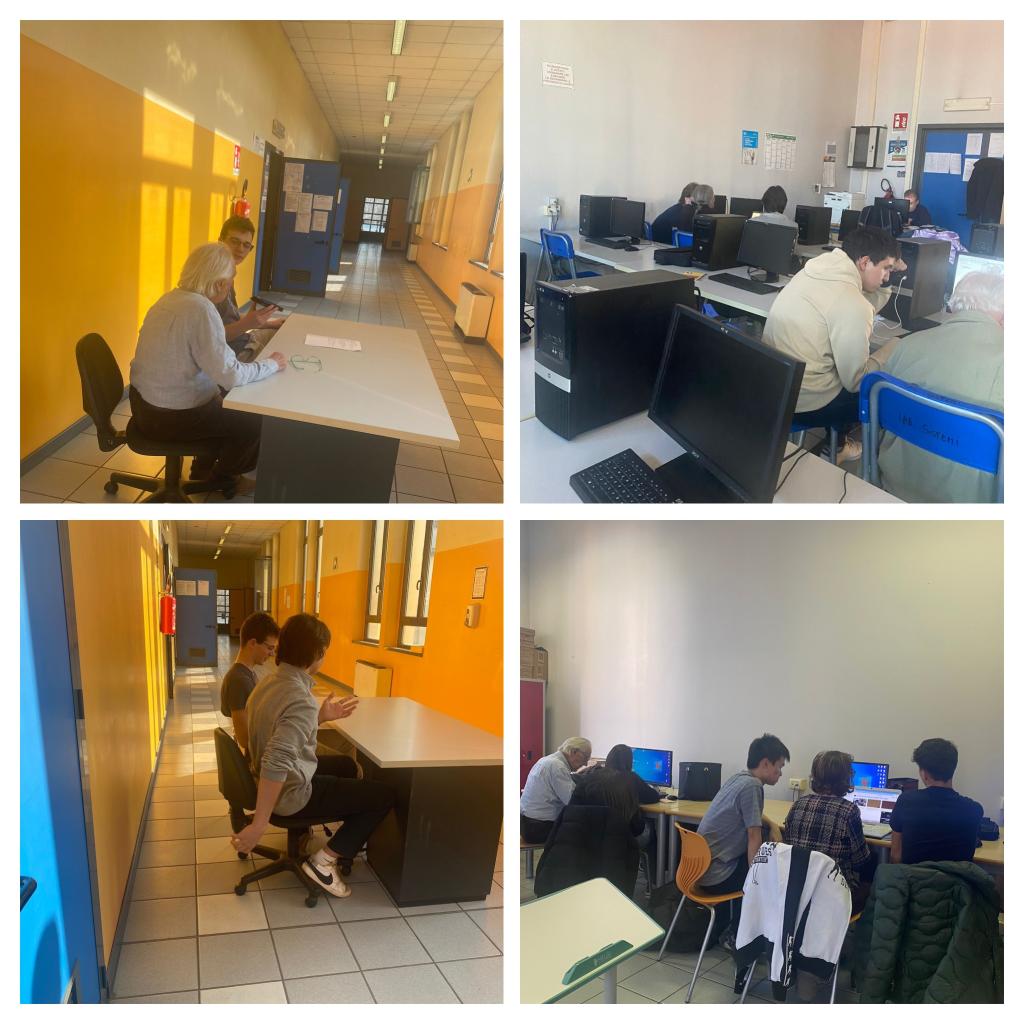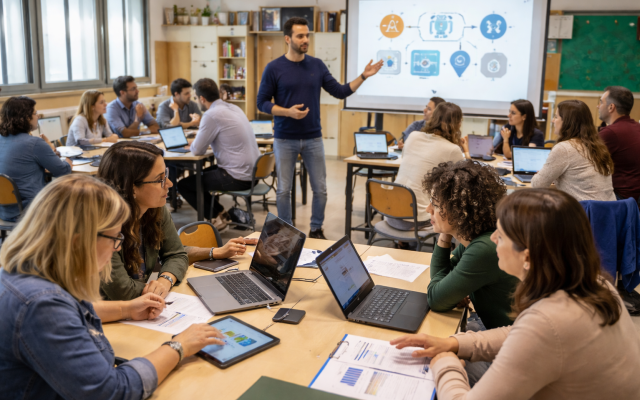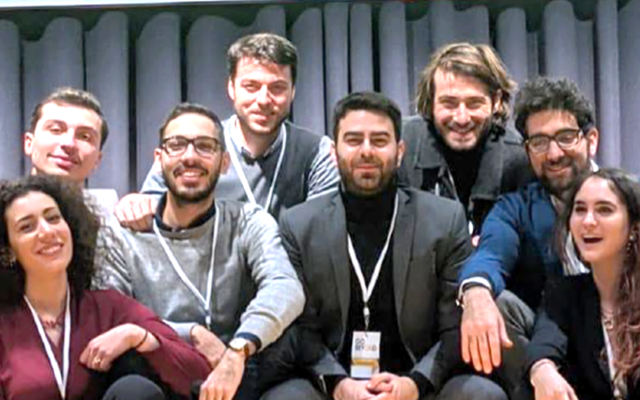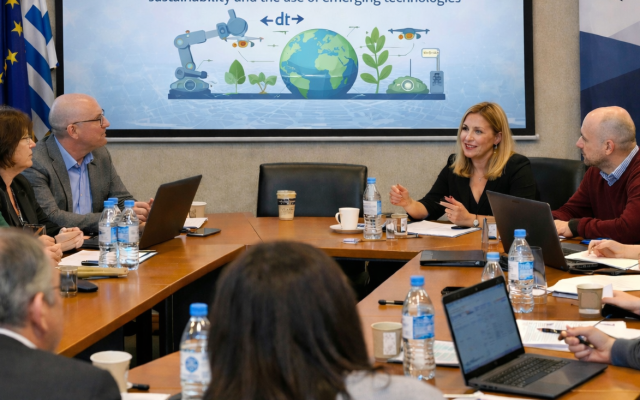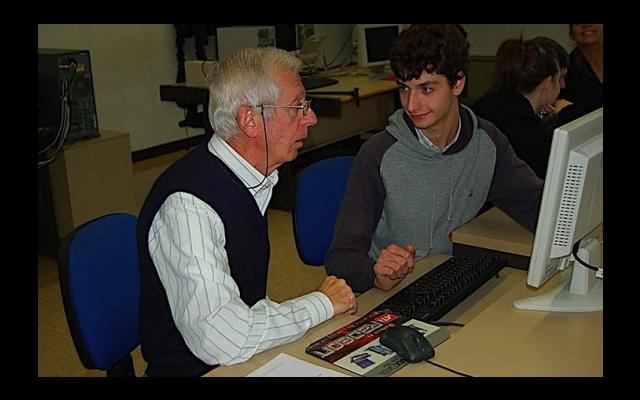Digital and media literacy for over-65 in Milan
The Istituto superiore G. Feltrinelli in Milan continues to host intergenerational meetings for Project Grandparents on the Internet, which this year are being held in synergy with the European project e-EngAGEd (Intergenerational Digital Engagement, financed by European Commission, Cerv-2022-Citizens-Civ Project no. 101081537), which aims to improve media literacy skills, linked to the conscious use of information communication technologies, to counter misinformation and recognize misleading news.
The senior class, composed of people aged 65-85, is tutored by third-year students. Over the course of seven meetings, the young tutors will teach the elders the secrets of technology. Tullia Romanelli, local coordinator for the Fondazione Mondo Digitale, is following the project and regularly updates us on its progress. Here is her most recent report.
“If we had to use a typewriter, like the ones you used when you were young, we absolutely wouldn't be capable of it... we really wouldn't know where to start, exactly like you don’t with mobile phones!”
These are just some of the reassurances that the ITIS Feltrinelli students continue to convey to their older "students" during the intergenerational workshops. Now, after a few weeks of training, all the "grandparents" express great satisfaction about having learned something. Even if it is just feeling calmer when they turn on a computer.
As I walk among the desks, I realize that the students are also appreciating this journey. You can see it in the way they launched into video interviews with a professionalism worthy of the creators of TV series for Netflix. They involve the grandparents with admirable professionalism by saying: "Don't worry, look at me, not at the phone." I was also interviewed with the following incipit: "So professor, tell us why we are doing this project, what it is about, and how it was born."
For my part, I don't know whether to feel strange or laugh about being called professor. I think that this term deserves a deeper reflection, but I will limit myself to maintaining that I consider it a sign of great trust in the educational institution that students instinctively call every adult to whom they turn for help in solving problems, “Professor.” Professors are the students’ points of reference for most of the day and anyone who enters the school automatically becomes a sort of "honorary professor."
But back to talking about training. There is another quality that is emerging with a disruptive force: patience. A patience that has different faces: the patience to repeat the procedure for accessing e-mail through credentials, perhaps for the fourth time or the patience to look for innovative solutions concerning Digital IDs without getting discouraged after the first attempts because, as a young student reports: "The gentleman is very interested." The patience of looking at all the photos of a cat and being moved by the phrase: "You know dear, I only have him to keep me company at home." In short, the patience to create a bond.
Bonds are created over time through mutual trust, but above all with will. And what is patience if not the willingness to tell stories and listen to each other, each with their own story? In a world where hatred spreads without borders and without sense, witnessing a generation accused of being disinterested, caring for someone, gives us hope for the future. So, at the end of the session, I overheard some excerpts of a conversation. The comments on upcoming tests are mixed with those about the festival that just ended and then return to the news of the day in the newspapers. Even in this case, I am pleasantly surprised.
In fact, a clear analysis of the variables and empathy, both rare in sixteen-year-olds, are evident. I therefore allow myself to formulate the hypothesis that these qualities have also developed thanks to the context that these kids attend every day. A context in which students bear surnames of Italian, Arab, and South American origin and no one finds it strange in any way. Just as no one is surprised when Ukrainian kids talk to each other in their native language to express a concept more quickly.
So, we witness patience re-emerge, this time with schoolmates. Knowing how to wait a little longer until they finish expressing a concept because you know that that same concept is said with other words in their language. The differences are cancelled as quickly as society creates them when faced with the question: "Are you also joining the video making group for interviews?" In this course, generations, knowledge, and ethnic groups are mixed, and learning reaches well beyond the digital realm.
